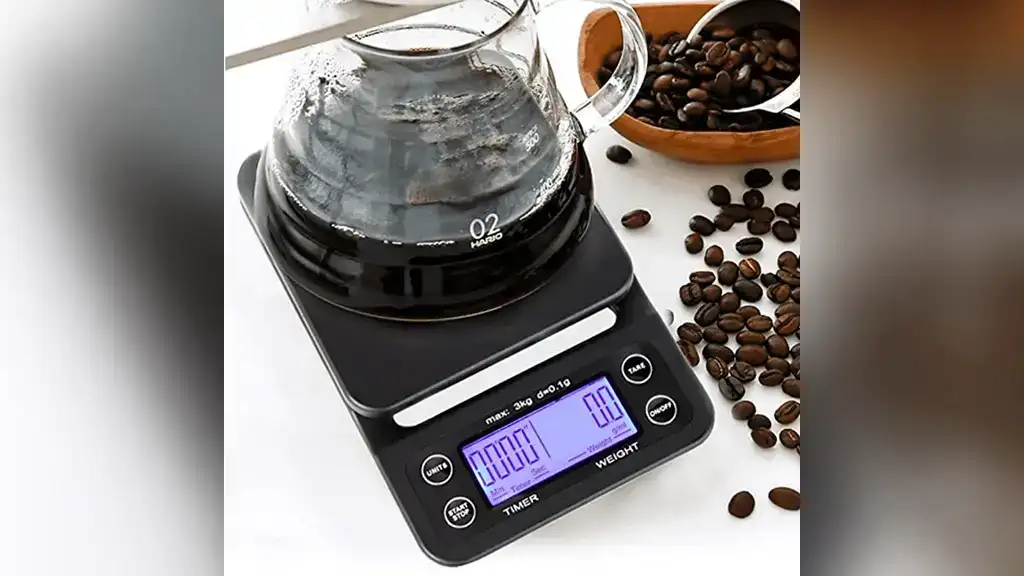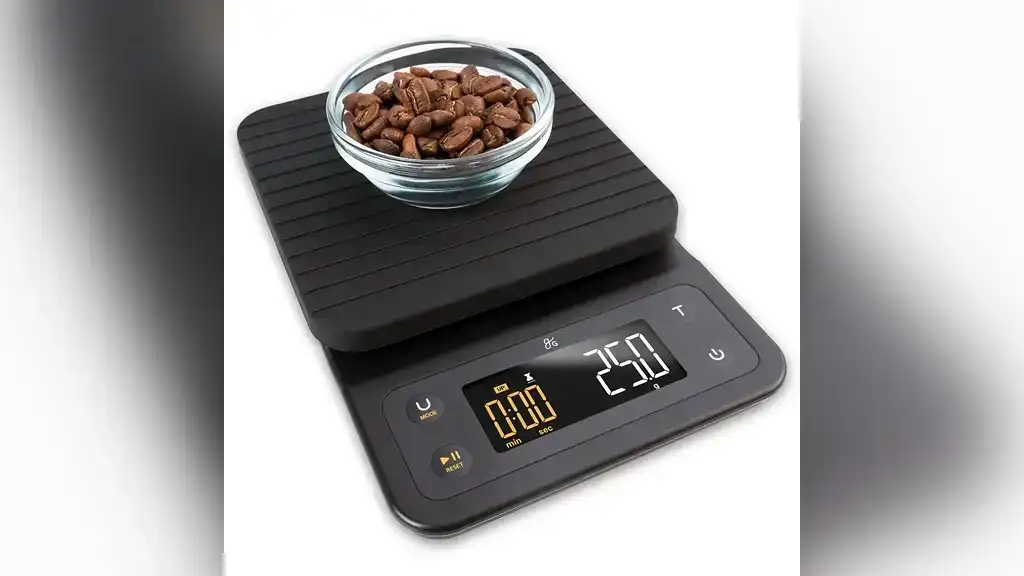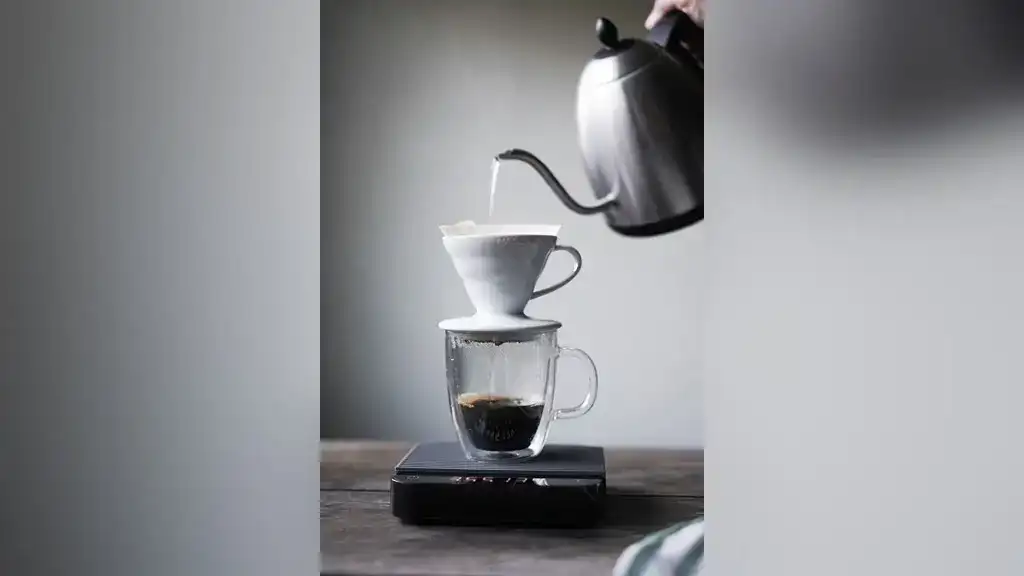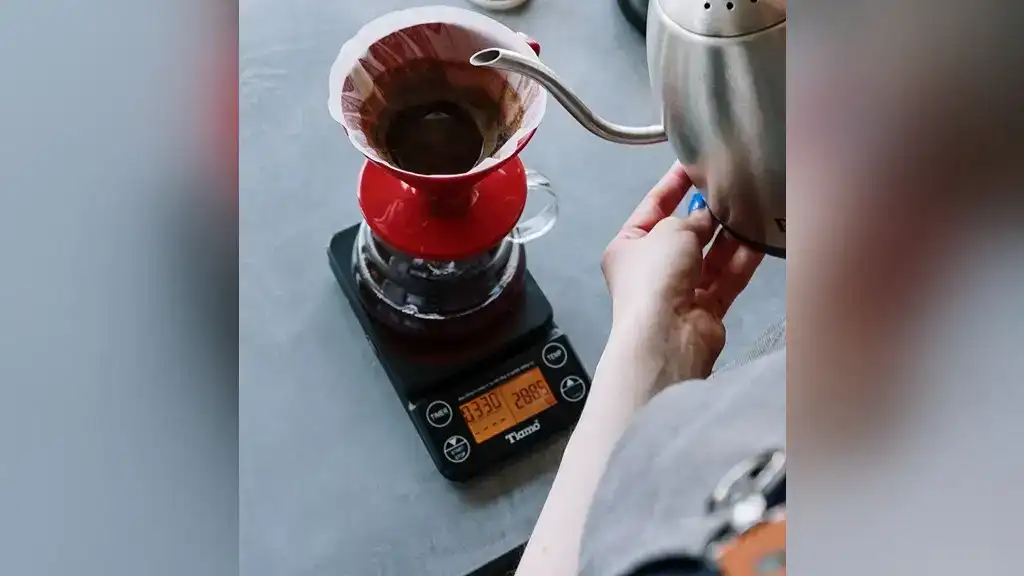If you’re a coffee enthusiast seeking precision and control in every brew, look no further than analog coffee scales. These innovative tools allow you to measure your coffee beans and water with utmost accuracy, ensuring consistent and flavorful results.
With their sleek design and reliable mechanics, analog coffee scales are a must-have for the modern coffee world. Discover how these scales fit into contemporary brewing practices and why they’re gaining popularity among younger generations.
Take your coffee brewing to the next level with the precision of analog coffee scales.
Anatomy of the Analog Coffee Scale
[youtube]https://youtu.be/LdZLLR8AfkM[/youtube]
Let’s explore the intricate mechanics and design of the analog coffee scale. By understanding the working principles and components behind the dial, you’ll gain a deeper appreciation for its functionality.
Additionally, we’ll delve into the aesthetics and vintage allure of the analog coffee scale, highlighting the craftsmanship and materials that contribute to its timeless appeal.
Mechanics and Design
To understand how the analog coffee scale works, you need to know the key components that make up its dial and the principles behind its functioning.
The mechanical components of an analog coffee scale include the dial, the pointer, the spring, and the load cell. The dial is marked with units of measurement and is used to read the weight of the coffee.
The pointer is connected to the spring and moves as the weight on the scale changes. The spring provides resistance and allows for precise measurement. The load cell is responsible for converting the weight applied to the scale into an electrical signal.
The design of analog coffee scales has evolved over time, with advancements in materials and technology leading to more accurate and durable scales. While digital scales offer convenience and precision, analog scales have a charm and aesthetic appeal that many coffee enthusiasts prefer.
While the charm of analog scales is undeniable, understanding the intricacies of decoding the units on your coffee scale can elevate your brewing precision. Dive deeper to decode the weight units and make the most of your analog scale.
The accuracy of an analog coffee scale depends on factors such as the quality of the spring, the calibration of the dial, and the precision of the load cell.
To maintain vintage analog coffee scales, it’s important to clean them regularly, avoid moisture and extreme temperatures, and handle them with care to prevent damage. Restoring antique analog coffee scales requires expertise and attention to detail, as well as sourcing original parts if needed.
Aesthetics and Vintage Allure
Take a moment to appreciate the craftsmanship and vintage allure of analog coffee scales, as they embody the timeless appeal that comes from their carefully selected materials and meticulous design.
Analog coffee scales are not just functional tools for measuring coffee; they are also objects of beauty that evoke a sense of nostalgia and retro charm. The vintage aesthetics of analog coffee scales have a unique appeal that resonates with those who appreciate the artistry behind their creation.
The choice of materials, such as brass or stainless steel, adds to their allure, giving them a classic and elegant look. The design of analog coffee scales is often simple and minimalist, with a focus on precision and accuracy.
The nostalgia factor of using analog coffee scales cannot be underestimated, as they provide a sentimental experience that connects us to the past.
Speaking of connections, have you ever pondered the subtle differences between coffee and kitchen scales? Discover how these two tools, while seemingly similar, serve distinct purposes in the culinary world.
In a world dominated by digital technology, analog coffee scales stand out as a reminder of a bygone era, celebrating the craftsmanship and materials that make them truly timeless.
| Key Features | Description |
|---|---|
| Vintage aesthetics | Analog coffee scales exude a timeless appeal with their vintage aesthetics, captivating those who appreciate the charm of the past. |
| Craftsmanship appreciation | The skill and artistry behind the creation of analog coffee scales can be seen in their intricate details and precise construction. |
| Materials and design | Analog coffee scales are carefully crafted using materials like brass or stainless steel, which not only enhance their durability but also contribute to their retro charm. The design is often simple and minimalist, emphasizing accuracy and functionality. |
| Nostalgia factor | Using analog coffee scales brings a sense of nostalgia, evoking memories of simpler times and providing a sentimental value that cannot be replicated by digital alternatives. |
| Retro charm | The unique allure of analog coffee scales lies in their retro charm. Their vintage design and aesthetic create a distinct and captivating presence in any coffee brewing setup. |
Mastering the Use of Analog Coffee Scales
To effectively use and maintain the precision of analog coffee scales, it’s crucial to understand how to read the dial and interpret the scale markers accurately. By familiarizing yourself with the markings and increments on the scale, you can ensure precise measurements for your coffee brewing.
Additionally, regular calibration of the analog coffee scale is essential to maintain its accuracy over time, guaranteeing consistent and reliable results.
For those eager to explore further, check out the top-rated scales for coffee enthusiasts available in the market. Whether you’re a novice or a seasoned barista, there’s always something new to learn and a scale that fits your needs.
Reading the Analog Coffee Scale Dial
You can easily interpret the analog coffee scale markers by aligning the dial with the corresponding measurement. Here are four key insights to help you read the analog coffee scale dial accurately:
- Clearly marked indicators: Analog coffee scales typically have clear markers for different measurements, such as grams or ounces. These markers are designed to make it easy for you to read and interpret the weight of your coffee.
- Smooth dial rotation: The dial on an analog coffee scale should rotate smoothly, allowing you to align it precisely with the desired measurement. This ensures accurate readings and helps you maintain consistency in your coffee brewing process.
- Understanding zero calibration: Analog coffee scales require zero calibration before use. This means that you need to ensure the dial is aligned with the zero marker when there’s no weight on the scale. This step is crucial for accurate measurements.
- Vintage appeal and sustainability benefits: Analog coffee scales not only offer precise measurements but also add a touch of vintage charm to your coffee brewing experience. Additionally, they’re often made from durable materials, promoting sustainability by reducing the need for frequent replacements.
Calibration and Precision: Analog Coffee Scale
Regularly check and adjust the calibration of your analog coffee scale to ensure its accuracy. Calibration is an essential part of maintaining precision in your measurements.
Here are the steps to regularly calibrate your analog coffee scale:
- Gather the necessary tools: a calibration weight, preferably one that matches the capacity of your scale.
- Place the calibration weight on the center of the scale.
- Check if the scale’s reading matches the weight. If it doesn’t, adjust the calibration dial or screw until it aligns with the weight.
- Repeat the process with different weights to ensure consistent accuracy.
- Clean your scale regularly to remove any residue that may affect its performance.
- Troubleshooting tip: If your scale isn’t functioning properly, refer to the manufacturer’s instructions or seek professional assistance.
Regular maintenance and calibration of your analog coffee scale won’t only ensure accurate measurements but also prolong its lifespan. Additionally, analog scales have a lower environmental impact compared to digital scales, making them a sustainable choice for coffee enthusiasts.
The Durability Aspect: Analog Coffee Scale
Analog Coffee Scales are renowned for their impressive longevity and craftsmanship. The meticulous attention to detail and high-quality materials used in their construction ensure that these scales can withstand the test of time.
Additionally, their eco-friendly benefits are worth noting, as Analog Coffee Scales contribute to a more sustainable and environmentally conscious coffee brewing experience.
Longevity and Craftsmanship
Highlighting the meticulous craftsmanship and attention to detail plays a crucial role in the remarkable longevity of analog coffee scales. These scales are designed with precision and built to last, ensuring an exceptional lifespan that surpasses that of their digital counterparts.
Here are four factors that contribute to the longevity of analog coffee scales:
- Craftsmanship factors: Analog coffee scales are crafted with high-quality materials and undergo rigorous testing to ensure durability and reliability.
- Lifespan contributors: The analog scale mechanics are designed to withstand daily use and provide accurate measurements for years to come.
- Vintage aesthetics: The timeless design of analog coffee scales adds a touch of elegance to your kitchen, making them a stylish choice that stands the test of time.
- Sustainable choice: Analog coffee scales are eco-friendly, as they don’t require batteries or electricity to operate, reducing waste and environmental impact.
Investing in an analog coffee scale not only guarantees longevity but also showcases your commitment to craftsmanship, innovation, and sustainability.
To ensure your scale remains in top condition, it’s essential to know some hacks for maintaining your coffee scale. A well-maintained scale can serve you for years, ensuring every brew is perfect.
Sustainability and Environmental Footprint
By choosing an analog coffee scale, you can contribute to a more sustainable future while enjoying the long-lasting nature and eco-friendly benefits of this durable kitchen tool.
Analog coffee scales have a minimal environmental impact compared to their electronic counterparts. They do not require batteries or electricity to operate, reducing the consumption of resources and minimizing electronic waste.
Sustainable coffee brewing is becoming increasingly important to conscious consumers, and using an analog coffee scale is a simple way to support this movement. Additionally, analog coffee scales are eco-friendly kitchen tools that promote mindful and conscious consumer choices.
They are made from durable materials that can withstand the test of time, reducing the need for frequent replacements and further reducing waste. Make a conscious choice for the environment by opting for an analog coffee scale.
| Analog Coffee Scale Benefits | |
|---|---|
| Eco-friendly | Minimizes electronic waste |
| Sustainable | Promotes conscious consumer choices |
| Durable | Long-lasting |
Overcoming Challenges with Analog Coffee Scales
To ensure optimal functioning of your analog coffee scale, it’s important to address common issues that may arise. Troubleshooting tips can help you resolve typical problems such as inaccurate measurements or a slow response time.
Additionally, proper maintenance and upkeep are essential for the longevity of your analog coffee scale, including regular cleaning and calibration.
Addressing Common Issues
If you’re experiencing any issues with your analog coffee scale, let’s explore some common problems and their solutions. Here are four troubleshooting techniques to help you address any common issues with your analog coffee scale:
- Inaccurate measurements: If your analog coffee scale is giving you inconsistent readings, try calibrating it using a calibration weight. Follow the manufacturer’s instructions to ensure accurate measurements.
- Stuck or unresponsive display: If the display on your analog coffee scale isn’t working or is stuck, check the batteries and replace them if necessary. Clean the contacts to ensure a good connection. If the issue persists, contact the manufacturer for further assistance.
- Unstable platform: If your analog coffee scale is wobbling or not providing a stable platform, check if the surface is level. Adjust the feet or use a leveling tool to ensure stability.
- Overload error: If your analog coffee scale shows an overload error, remove any excessive weight from the platform. Ensure that you aren’t exceeding the maximum weight capacity of the scale.
Maintenance and Upkeep
Here are three simple and effective tips to keep your analog coffee scale clean and well-maintained.
First, regularly wipe down the surface of the scale with a damp cloth to remove any coffee grounds or spills. Avoid using harsh chemicals or abrasive materials that could damage the scale.
Second, ensure that the scale is properly calibrated by using a calibration weight or following the manufacturer’s instructions. This will ensure accurate measurements and prevent any inconsistencies.
Lastly, store your analog coffee scale in a clean and dry place when not in use to prevent dust or moisture buildup.
Following these cleaning tips and maintenance guide will help prolong the lifespan of your analog coffee scale and ensure its optimal functioning.
But what happens when you rely solely on your instincts? Delve into the world of eyeballing measurements vs. using precise coffee scales and understand the significance of precise measurements in brewing.
Analog Coffee Scale in the Modern Coffee World
As a coffee enthusiast in the modern world, you may wonder how Analog Coffee Scales fit into contemporary coffee brewing practices.
While analog scales have their charm, it’s also essential to be aware of the features every coffee scale should possess. From timers to precision, ensure your scale meets the modern-day requirements.
Well, fear not, as we’ll explore the integration of Analog Coffee Scales with various modern brewing techniques, providing you with best practices for achieving that perfect cup.
Additionally, we’ll delve into the growing appeal of Analog Coffee Scales among younger generations, examining the resurgence of interest in these traditional tools among millennials and Gen Z.
Integration with Brewing Techniques
To achieve optimal results, incorporating an analog coffee scale into your brewing technique ensures precise measurements and consistent quality in your coffee.
For those who love to travel, don’t let your coffee standards drop. Consider travel-friendly coffee scales that ensure you get the perfect brew, even on the go.
Here are four best practices for using an analog coffee scale with various modern brewing methods:
- Optimizing extraction with different brewing methods: An analog coffee scale allows you to accurately measure the coffee grounds and water, ensuring the right ratios for different brewing techniques like pour-over, French press, or AeroPress.
- Overcoming potential issues with measurement precision: Analog coffee scales offer high accuracy, allowing you to measure small increments for precise brewing. This helps overcome challenges related to inconsistent measurements and ensures a consistent taste profile in your coffee.
- Its role in the rise of specialty coffee culture: Analog coffee scales have become an essential tool for specialty coffee enthusiasts. By providing precise measurements, they enable coffee lovers to experiment with different brewing variables and explore unique flavors and profiles.
- Enhancing the brewing process through tactile feedback: One of the advantages of analog coffee scales is the tactile feedback they provide. The weight readings allow you to adjust your pouring technique in real-time and achieve an even extraction, resulting in a well-balanced and flavorful cup of coffee.
Incorporating an analog coffee scale into your brewing routine not only improves the accuracy and quality of your coffee but also adds a level of personalization to suit your preferences.
The Resurgence among Young Enthusiasts
With the resurgence of analog coffee scales among millennials and Gen Z, you can explore how these traditional tools fit into modern coffee brewing practices and understand their growing appeal among younger generations.
In a world where spills are inevitable, especially during the morning rush, it’s worth considering splash-proof coffee scales that combine traditional charm with modern resilience.
Analog coffee scales offer several benefits that make them a preferred choice over digital scales. Firstly, analog scales bring a sense of nostalgia and authenticity to the coffee brewing experience, appealing to those who appreciate the traditional aspects of coffee making.
Additionally, analog scales are known for their accuracy, ensuring precise measurements and consistent brewing results. Their aesthetic appeal also cannot be ignored, as they add a touch of elegance and sophistication to any coffee setup.
When comparing analog and digital scales, analog scales often come out on top in terms of accuracy and overall user experience. The resurgence of analog coffee scales is a testament to the enduring charm and timeless functionality of these classic tools.
| Analog Coffee Scale Benefits | Analog vs Digital Scales |
|---|---|
| – Nostalgic and authentic | – Analog scales offer |
| – Accurate measurements | better accuracy |
| – Aesthetically appealing | and user experience |
Making an Informed Purchase
When it comes to navigating the Analog Coffee Scale marketplace, there are a few key considerations to keep in mind.
While analog scales have their merits, the digital coffee scales bring modern precision to the table. Understand the nuances to make an informed choice.
Firstly, it’s important to research reputable brands that have a track record of producing high-quality scales.
Additionally, ensuring authenticity is crucial, as there are counterfeit products in the market.
Navigating the Analog Coffee Scale Marketplace
Choose from reputable brands, ensuring authenticity, and make informed decisions when navigating the Analog Coffee Scale marketplace. Here are four key factors to consider:
- Reputable Brands: Opt for well-known brands that have a strong reputation for producing high-quality analog coffee scales. These brands have a proven track record of delivering accurate and reliable products.
- Authenticity Assurance: Look for analog coffee scales that come with certification or authentication labels. This ensures that you’re purchasing a genuine product that meets industry standards.
- Informed Decisions: Conduct thorough research before making a purchase. Read reviews, compare prices, and consider the specific features and functionalities that align with your needs.
- Vintage Charm, Effective Use: Analog coffee scales not only provide precise measurements but also add a touch of vintage charm to your coffee brewing experience. Choose a scale that not only looks great but also offers easy-to-read measurements and user-friendly features for effective use.
Understanding Value and Costs
Consider evaluating the long-term value and cost spectrum of analog coffee scales before making an informed purchase decision tailored to your individual needs.
When analyzing the cost of analog coffee scales, it’s important to understand the price range and the factors that affect their cost. Factors such as the materials used, the brand reputation, and the level of precision provided can all contribute to the price of analog coffee scales.
Comparing analog and digital scales, analog scales have their own unique advantages and disadvantages. While digital scales offer precise measurements and often come with additional features, analog scales provide a tactile and intuitive experience that many coffee enthusiasts appreciate.
The value of precision in coffee brewing can’t be overstated. Accurate measurements are crucial for achieving consistency and the desired flavor profile in every cup. Analog coffee scales play a significant role in this by offering reliable and precise measurements.
Additionally, analog coffee scales offer a variety of customization options. From different designs and colors to customizable features such as timers and auto-tare functions, analog scales can be tailored to suit individual preferences and enhance the overall coffee brewing experience.
The Science and Philosophy of Analog Coffee Scales
Let’s now examine the technical aspects of Analog Coffee Scale measurements. By understanding the measurement physics behind Analog Coffee Scales, we can appreciate how they achieve precision and accuracy in weighing coffee grounds.
Beyond the technicalities, it’s essential to grasp the benefits of using a coffee scale. From consistency to flavor perfection, discover why it’s a favorite tool among baristas.
Additionally, we’ll explore the philosophy of slow, mindful living that Analog Coffee Scales represent, highlighting the therapeutic benefits of using manual tools in our fast-paced world.
Delving into Measurement Physics
You can explore the science and philosophy behind Analog Coffee Scales to understand how they achieve precise measurements and embody the ethos of slow, mindful living.
While we’re on the topic of precision, did you know that modern brewing often integrates coffee scales with built-in timers? These tools combine the best of both worlds, ensuring not just weight accuracy but also perfect timing for your brew.
Here’s a scientific look at how Analog Coffee Scales achieve measurement accuracy:
- Precision Mechanics: Analog Coffee Scales are equipped with high-quality, precision-engineered components that ensure accurate measurements. These scales are designed to minimize friction and ensure smooth movement, allowing for precise readings.
- Vintage Design: Analog Coffee Scales often feature a vintage design, which not only adds aesthetic appeal but also contributes to their accuracy. The design incorporates a balance mechanism that allows for precise measurement by evenly distributing the weight.
- Maintenance Tips: To maintain measurement accuracy, it’s essential to keep the scale clean and free from debris. Regularly calibrating the scale ensures consistent and accurate readings.
- Environmental Sustainability: Analog Coffee Scales promote environmental sustainability by eliminating the need for batteries or electrical power. They rely solely on mechanical force, reducing energy consumption and waste.
Exploring the science and philosophy behind Analog Coffee Scales reveals their commitment to precision, timeless design, and eco-consciousness.
Mindfulness and Slow Living
Embrace mindfulness and slow living by reflecting on the therapeutic aspects of using manual tools, such as the Analog Coffee Scale, in today’s fast-paced world.
The slow living movement encourages individuals to take a step back from the hustle and bustle of modern life and find solace in simple, manual tasks.
Diving deeper into the world of coffee scales, it’s fascinating to explore the different types of coffee scales available. From analog to digital, each type offers unique features tailored to specific brewing needs.
Manual tools like the Analog Coffee Scale provide an opportunity for mindfulness practices, allowing individuals to focus their attention on the present moment and engage fully in the task at hand.
The act of manually measuring coffee grounds with the scale can be a calming and centering experience, promoting a sense of connection with the process and the ingredients. The therapeutic benefits of using manual tools extend beyond the act itself, fostering a sense of mindfulness and intentionality in daily routines.
Incorporating manual tools into your daily life can bring a sense of satisfaction, purpose, and tranquility.
To truly master your brewing game, it’s essential to master the use of your coffee scale. From calibration to maintenance, ensure you’re getting the most out of your tool for that perfect cup every time.
Conclusion
In conclusion, analog coffee scales offer a precise and detailed measurement tool for coffee enthusiasts. Their design and mechanics ensure accuracy and precision in brewing coffee. With proper use and maintenance, these scales can last for a long time, making them a durable and eco-friendly option.
Despite the challenges that may arise, there are solutions and tips available to optimize the functioning of analog coffee scales. As the modern coffee world embraces the appeal of analog scales, it’s important to make an informed purchase that suits individual needs.
The science and philosophy behind analog coffee scales further emphasize their importance in promoting a slow, mindful living approach.

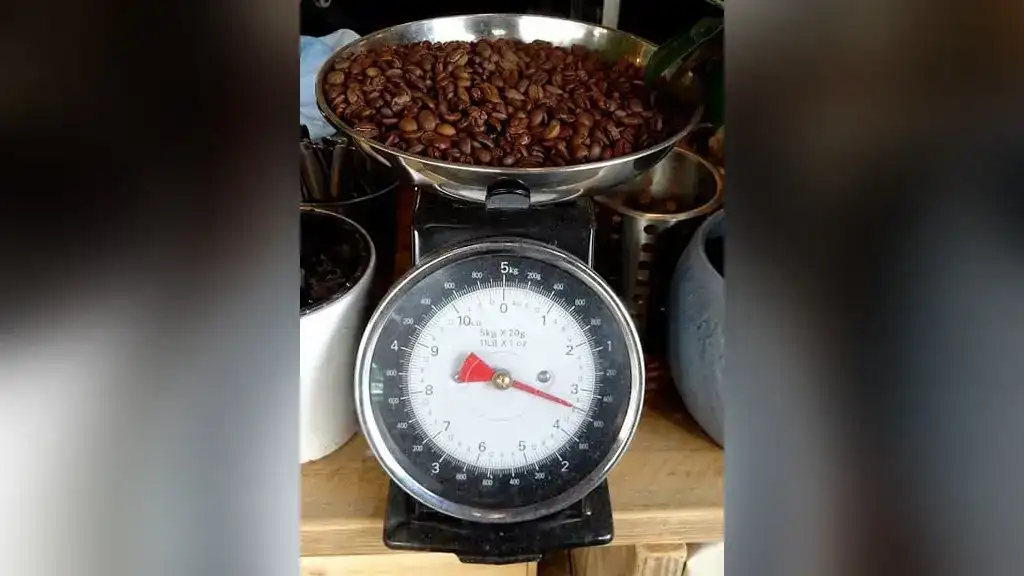




![Best Coffee Scales ([year]) You Shouldn't Miss! Best-Coffee-Scales-You-Shouldnt-Miss-1](https://coffeescan.com/wp-content/uploads/Best-Coffee-Scales-You-Shouldnt-Miss-1.webp)
